OUR HISTORY
OUR HISTORY

POST WAR CHALLENGES
Surviving the First World War was just the beginning for those who fought. Returning home meant facing new challenges: finding work in a near-bankrupt economy and pulling a life back together amidst the ruins of a war-weary land.
Mass demobilisation into a damaged economy led to widespread and visible hardships, recognised by the Government with the provision of an early form of unemployment benefit. Yet commissioned officers were excluded from this payment and unlike officers of the pre-war generation, they did not have private means to fall back on. Many ordinary men who had sacrificed so much for their country, were left destitute, along with their families.

RECOGNISING THE SACRIFICES MADE
The earliest military charities were founded in the 19th century and their number grew during the First World War, but none sought to support officers. Field Marshal Earl Haig had witnessed first-hand a real need among former officers and was determined to do something about it.
Officers’ Association Benevolent Fund was launched in January 1920 by Earl Haig, Admiral of the Fleet Earl Beatty and Air Marshal Sir Hugh Trenchard. They made clear that the Association would assist in the formation of a united organisation to take care of the interests of all who had served, irrespective of rank.

SUPPORT FOR ALL RANKS
Subsequently, when the British Legion was formed a year later, six OABF representatives sat on its National Executive committee with the OABF handing over its Appeals Department and its Great War Remembrance League subscription list (established by Earl Haig). The OABF also made a cash donation to support the administrative costs of set-up. In return, the OABF received a share of funds raised by the Legion which contributed to the operating costs of the OABF (ending in 2023).
From the OABF’s beginnings, the Royal Family had taken a close interest in the Association’s work: King George V, Queen Mary and the Princess Royal attending a fund-raising Garden Fete in 1920, with the King’s Aunt Princess Louise making a rare public appearance. His Majesty became the first patron of the OABF, a role graciously accepted by all his sons and then his granddaughter, Queen Elizabeth II. Various members of the Royal Family have become life members, including, in 1948, Her Majesty the Queen, as Duchess of Edinburgh and the Duke of Edinburgh. The Prince of Wales, the future Duke of Windsor, took particular interest in the employment of former officers which remained key to the OABF’s activities until May 2022 when the OABF’s employment services were combined with the Regular Forces Employments Association (RFEA) to form the new Forces Employment Charity, beginning an exciting new chapter for ex-Forces employment support.

JOBS FOR OFFICERS
Earl Haig’s aim had always been “to go to the root of the problem and solve it, not by continual payments to men who are out of work but by finding work for them and, by putting them in jobs and businesses.” He therefore asked Government, Local Authorities, companies and private employers for their “active assistance to open the gates of useful employment to these men to whose past exertions we owe our liberties if not our lives.” Nonetheless, in 1921, the OABF assisted 24,221 cases financially; this number dropped to 18,340 the following year, but soon the effects of the Great Depression were being felt across the nation and were particularly acute for those with war wounds, both seen and unseen, and the widows, children and dependants of the war dead. The Charity which Earl Haig had anticipated being needed for just a few years came under increasing demand. Then came World War II and a new generation of those deserving of support on a return to civilian life. 1952 saw the highest level of cases administered by the OABF since 1927.
The Association’s governing document, its Royal Charter, was amended at the end of the Second World War to ensure assistance could be provided to women officers and their dependants. The OABF had always taken an active interest in pensions payable to former servicemen, but the cumulative effect of two world wars made the issue of retired pay and pensions even more pressing and the OABF formed a specific committee to provide advice and to lobby Government, co-operating closely with the then Officers’ Pensions Society.
Since 1945, conflicts involving UK Forces have thankfully been on a smaller scale, but there have only been two years when a British serviceman was not killed on operations. To this day, the demand for support and assistance continues but the nature of the need has changed. Medical and technological advances, particularly since the Falklands conflict, mean more servicemen and women are able to survive their injuries. This may make their needs more complex as, while possibly suffering from life-changing injuries, there is a greater expectation that they should still be able to play a full and fulfilling role in society. Different charities now deal with specific needs.

THE OABF TODAY
The terms of its founding Royal Charter means that the OABF exists to assist former commissioned officers and their dependants. We believe that those who have served, and their families should have someone who understands their background and individual needs, especially in difficult times. We provide practical support and guidance to former officers and their dependants, working with military charities and other charitable organisations to access available funds to improve lives.
In May 2022 the OABF’s employment services were combined with the Regular Forces Employments Association (RFEA) to form RFEA The Forces Employment Charity. The OABF continues its mission to provide advice, support and to relieve hardship amongst those who have held a commission in the Armed Forces, their families and dependants.







